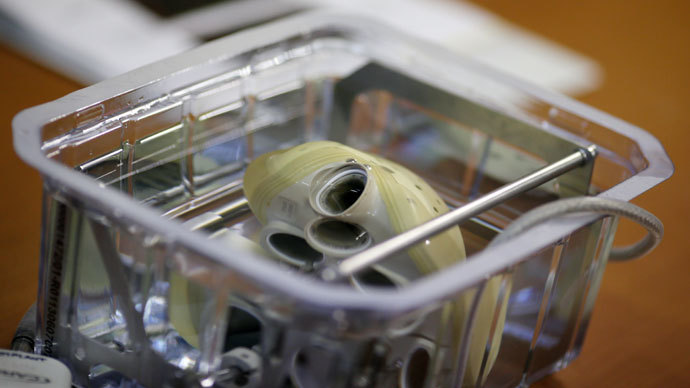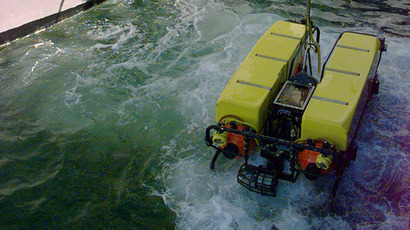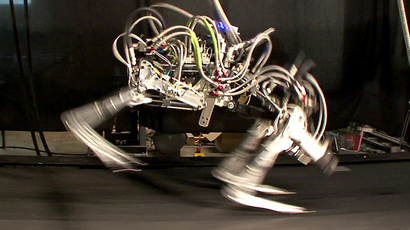World's 1st self-regulating artificial heart transplanted in France

Hundreds of thousands of people could soon get off the transplant waiting list as French doctors are celebrating the installation of a revolutionary artificial heart into a 75-year-old patient, paving the way for long-lasting robotic substitutes.
The heart, which spent 25 years in the making and was produced by the French company Carmat, is somewhat of a technological marvel. The key differences with any previous medical efforts are that it is completely artificial, self-regulating and mimics the human heart in ways other devices could only dream of.
The self-contained artificial unit weighs about 900 grams (three times the weight of the human heart) and is completely lithium-battery powered. It is made from soft “biomaterials” and functions with the aid of a multitude of sensors designed to mimic every little detail of a real beating heart, explain its chief engineers Alain Carpentier and Philippe Pouletty.
The size of the current trial model is fit for 75 percent of men and 25 percent of women, but the creators are already working on a more compact solution.
It’s also a pricey device, but at about $200,000 it’s equivalent to the price of a real heart transplanted from an accident victim.
The transplant recipient so far is “progressing and recuperating,” Christian Latermouille, one of the 16 doctors taking part in the Wednesday surgery at Paris’s George Pompidou hospital, told AFP three days later.
Explaining further, the doctor told a press conference that the patient “was nearing the end of his life,” but the surgery was successfully coordinated and “there were no complications linked to the innovative nature of the implant operation.”
"He is not walking yet, but we will try to get him sitting and then standing soon enough. The objective is for him to have a normal life," Latermouille said in conclusion, while Carpentier expressed his gratitude to the patient, whom he said “had a lot of humor” and was “a very good patient.”
The reason for all the jubilation is that the Carmat heart promises to do several things: lessen the risk of blood clots; minimize chances of rejection – which is not an uncommon occurrence after complex surgery; bust most importantly, for the first time provide patients with a viable alternative to a real heart. It is important to note that even the best alternatives to the French model are meant for dying patients who are not projected to live longer than one month after surgery.

One current viable alternative is the US AbioCor heart, but it is still designed for short-term use – around one month.
But the Carmat heart means that close to 100,000 people currently on the waiting list for a heart transplant in Europe and the United States could soon enjoy a completely different reality and a return to normal life, according to the French company.
Journalists caught up with Carpentier again on Sunday to get some more comment on his engineering breakthrough. According to The Independent, the doctor answered with a quote from the French poet Calude Bernard: “Whatever the poets may say, the heart is just a pump.”
But therein lay the heart’s special secret.
“It’s a rather special kind of pump,” Carpentier said. “If your loved one came through the door [and you were fitted with the Carmat heart], it would start to beat faster just like a real one.”
Now the door is open to future trials, explain Carmat’s co-founders.
"A number of patients are being selected. It is likely that other implantations will take place in the coming weeks," Carpentier told Europe 1 radio, adding that they will happen in several phases.
First up will be a small group of volunteers with terminal heart conditions. They will be assessed one month after the surgery, if the artificial heart is in question, and a little earlier than that if they are the recipients of a real heart.
The breakthrough has earned the company and its engineers country-wide acclaim, including praise from Prime Minister Jean-Marc Ayrault and President Francois Hollande himself, who in a congratulatory letter told the team that “France can be proud of this exceptional effort in the service of human progress."














